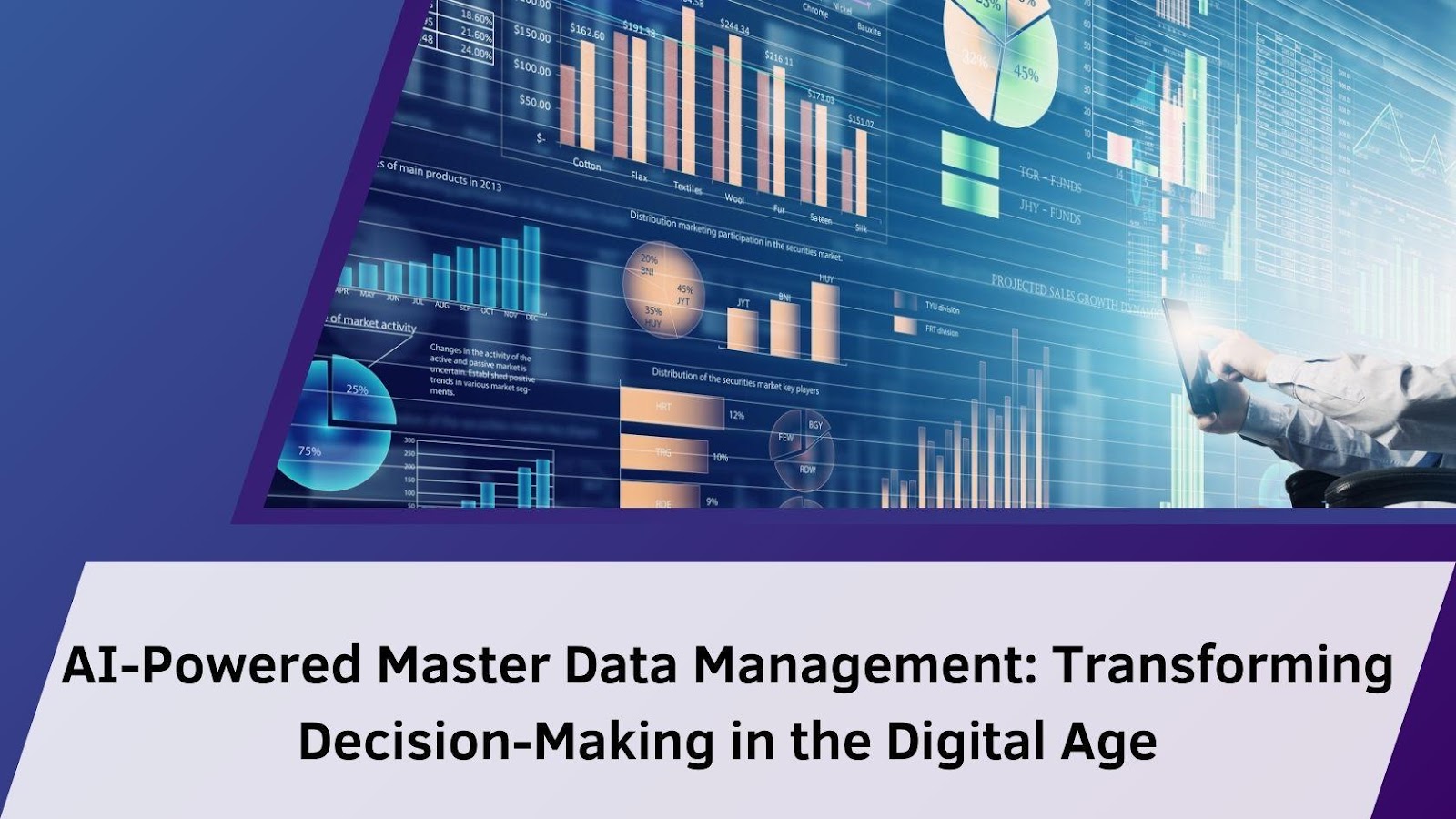In the modern digital era, Master Data Management (MDM) is undergoing a revolutionary transformation with the integration of artificial intelligence (AI) and advanced analytics. Viswakanth Ankireddi explores this shift, emphasizing how AI-driven metadata management and context-aware systems are reshaping enterprise data practices. His research examines the operational benefits, technological advancements, and strategic value of intelligent MDM.
The Shift from Static to Intelligent MDM
Traditionally, MDM systems functioned as dynamic repositories, requiring extensive manual oversight and periodic updates. However, organizations faced challenges such as data inconsistencies and inefficiencies in data reconciliation. AI-driven MDM introduces automation, predictive analytics, and self-learning capabilities, enabling businesses to improve data quality by 43% and reduce manual reconciliation efforts by 35%.
Enhancing Data Discovery with AI-Powered Metadata Management
AI-powered metadata management enhances data accessibility and governance by automating classification with up to 85% accuracy, reducing manual effort by 70%. Machine learning accelerates data discovery by 3.2x and improves cross-domain correlation accuracy by 52%, enabling faster insights and better decision-making. This transformation optimizes enterprise data utilization, streamlining workflows and ensuring more effective governance across diverse datasets.
Context-Aware MDM for Real-Time Adaptability
One of the most significant advancements in MDM is the emergence of context-aware systems that dynamically adjust to changing business conditions. These intelligent frameworks have led to an 82% accuracy rate in automated data classification and a 68% reduction in false positive alerts. Such improvements are particularly beneficial in sectors that require high data integrity, such as healthcare and financial services.
Predictive Analytics: Driving Proactive Decision-Making
AI-driven predictive analytics empowers organizations to foresee trends and make proactive decisions. Companies implementing predictive analytics in MDM report a 36% reduction in decision delays and a 45% improvement in supply chain resilience. Additionally, businesses have experienced a 31% increase in customer retention rates due to enhanced segmentation and personalized data insights.
The Role of NLP in Unstructured Data Management
Natural Language Processing (NLP) has significantly improved how organizations handle unstructured data. By incorporating NLP into MDM, businesses have achieved a 42% increase in unstructured data processing efficiency and a 57% reduction in document processing time. These advancements streamline business operations and enhance compliance monitoring by reducing manual data entry errors by 38%.
Strengthening Data Governance with AI-Driven Systems
AI-enabled MDM enhances data governance by automating quality control processes and regulatory compliance checks. Enterprises leveraging AI-driven governance frameworks have seen a 2.5x improvement in governance efficiency and a 41% reduction in compliance-related incidents. This shift allows organizations to maintain robust data integrity while adhering to evolving regulatory standards.
The Strategic and Operational Benefits of Intelligent MDM
The impact of AI-powered MDM extends beyond technical efficiency, offering tangible strategic advantages. Organizations implementing intelligent MDM systems report a 35% reduction in data processing time, a 44% increase in master data accuracy, and a 53% improvement in supply chain visibility. These enhancements translate into better risk management, higher customer satisfaction, and a stronger competitive edge.
Implementation Challenges and Readiness Factors
While AI-driven MDM offers significant benefits, successful implementation requires careful planning. Organizations that proactively assess their technical infrastructure achieve a 38% higher success rate in deployment. Factors such as scalable cloud infrastructure, security frameworks, and cross-functional data integration play a crucial role in optimizing performance. Additionally, enterprises investing in employee training and structured change management strategies have seen a 62% increase in MDM adoption success rates.
The Future of AI-Driven MDM
As businesses continue to generate vast volumes of data, the role of intelligent MDM will only grow in importance. With advancements in AI, organizations can expect even greater improvements in real-time data analytics, automated governance, and personalized business intelligence. The future of MDM lies in its ability to adapt and evolve alongside digital transformation, ensuring enterprises remain agile and data-driven.
In conclusion, Viswakanth Ankireddi’s research highlights the transformative potential of AI in Master Data Management (MDM), providing a strategic roadmap for organizations aiming to strengthen data governance and enhance decision-making. As enterprises adopt AI-driven solutions, the transition from conventional data management to intelligent, context-aware MDM will fundamentally reshape business operations in the digital era.



































